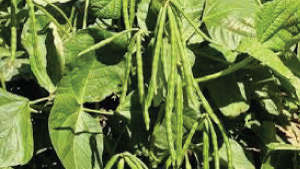
Organic Farmingwww.ifoam.bio
Importance of Leguminous Crops in Organic Farming
In symbiotic relationship with certain types of bacteria, such as rhizobium, bradyrhizobium, legume crops are able to transform atmospheric nitrogen into nitrogen compounds (N to N2) that can be used by growing plants. It is estimated that legumes with a subgroup of pulses can fix nitrogen between 72 and 350 kg/ha/year.
This is how leguminous crops help in organic farming:
• Some species of pulses can release soil-bound phosphorus, which also plays a significant part in plant nutrition and the food that we consume.
• Crop rotations play a major part in organic farming and rotations that include leguminous plants enable future production to continue on the same plot of land.
• Pulses in intercropping systems enable a higher underground utilization efficiency due to their root structures and, as intermediate plants, help in weed control and protect against diseases and pests.
• Deep rooting pulses such as pigeon peas can supply intercropped species with groundwater.
• The versatility of the pulses allows them to be used in distinct ways in organic systems: crop rotations, intercropping, leaf farming and as a cover crop.
Source: www.ifoam.bio
If you find this information useful, click on the yellow thumbs up sign under the photo and also share this with your farmer friends using the options given below.
153
0

